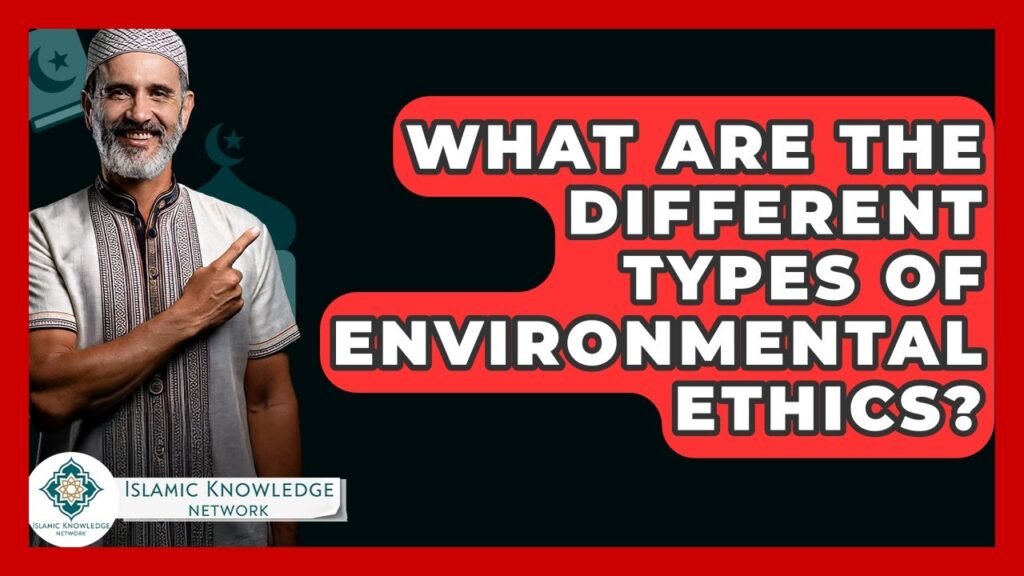Disclaimer:
The content published on this website is provided for general informational purposes only. Articles are generated with the assistance of artificial intelligence and are reviewed periodically; however, accuracy cannot be guaranteed in all cases. Readers are encouraged to verify important information from reliable and authoritative sources before relying on it. The website does not intend to mislead, and any errors found will be corrected when identified.
Introduction: What Are The Different Types Of Environmental Ethics? – Islamic Knowledge Network
In an age where environmental crises are at the forefront of global discourse, it becomes imperative to explore the various frameworks through which we can understand our moral responsibilities toward the Earth. Environmental ethics serves as a crucial lens, guiding how individuals and communities engage with nature and contemplate the ethical implications of their actions. Among the diverse cultural perspectives that shape these discussions, Islamic teachings present a rich and profound understanding of humanity’s relationship with the environment, emphasizing stewardship, respect, and balance.
At Airlink Hajj and Umrah, we recognize the importance of integrating spiritual beliefs with practical actions, especially for those embarking on the sacred journey of Hajj and Umrah. Our blog not only provides timely updates regarding these pilgrimages but also delves into how Islamic tenets contribute to a sustainable and ethical approach to our environment. By understanding the distinct types of environmental ethics and their relevance within Islamic teachings, we encourage our readers to reflect on their role in preserving the planet for future generations, fostering a profound connection between faith, responsibility, and sustainability.
What Types of Environmental Ethics Exist? Explore Now!
Environmental ethics is a vital field that explores the moral relationship between humans and the environment. Various theories guide our understanding of how to interact with nature, aiming for a sustainable future.
One of the primary types is Anthropocentrism, which places human interests at the forefront, emphasizing the importance of preserving nature for human benefit. This approach often drives policies that focus on resource extraction in a way that maximizes human welfare. In contrast, Biocentrism advocates for the intrinsic value of all living beings, suggesting that nature deserves protection regardless of its utility to humans. This ethical perspective encourages a holistic view of ecosystems, valuing biodiversity and natural habitats.
Another prominent category is Ecocentrism, which extends moral considerations to ecosystems and their interdependent components. This approach promotes the idea that all elements of nature should be considered in decision-making processes.
Understanding these types of environmental ethics is crucial as we navigate today’s ecological challenges. For those seeking spiritual growth and clarity on their environmental impact, visiting our blog for the latest updates on Hajj and Umrah can be an enlightening experience. Engaging with these spiritual practices can help foster a deeper connection to the earth and its preservation.
FAQ on What Types of Environmental Ethics Exist? Explore Now!
FAQs for "What Types of Environmental Ethics Exist? Explore Now!"
1. What are the main categories of environmental ethics?
Environmental ethics can be broadly categorized into anthropocentrism, biocentrism, ecocentrism, and deep ecology. Each perspective offers a different approach to the relationship between humans and the natural world.
2. How do anthropocentric views influence environmental policies?
Anthropocentric ethics prioritize human interests and well-being, often leading to environmental policies that focus on sustainable development, resource management, and the economic benefits of conservation.
3. What is the significance of biocentrism in environmental ethics?
Biocentrism values all living beings and argues that they have intrinsic worth, which influences conservation efforts and promotes the protection of species and ecosystems regardless of their utility to humans.
4. Can you explain ecocentrism?
Ecocentrism emphasizes the importance of ecosystems as a whole, advocating for the health of all components of the environment, including non-living elements, and arguing for a holistic view of ecological balance.
5. What role does deep ecology play in environmental activism?
Deep ecology challenges the anthropocentric worldview and promotes a profound connection with nature. It inspires activists to pursue radical changes in societal values and practices for the sake of ecological integrity and sustainability.
Mushu, an experienced Saudi Arabia traveler and writer, shares insightful tips and spiritual reflections to enhance Hajj and Umrah journeys for fellow pilgrims. He has been to Makkah and Madina from 2016 to 2023 many times and his posts will reflect this.







